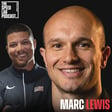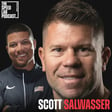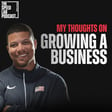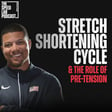
Cici Murray: Balancing Health & Performance
In this episode of The Speed Lab Podcast, Les and Cici dive deep into what it really takes to make an NFL 53-man roster — from the grind of training camp to the politics behind roster cuts. They discuss how performance, personality, and availability often outweigh raw talent, and share firsthand stories from elite athletes like T-Mac and others who’ve fought their way through the system.
The conversation expands into profiling athletes, tendon efficiency, data tracking, and how different physical and mental traits shape player development from high school to the pros.
Interested in learning more about the Universal Speed Rating? Click here to schedule a quick call with our team.
Episode Timestamps
00:00 – 05:30 • Opening banter & introduction
05:30 – 10:30 • The brutal reality of making a 53-man NFL roster
10:30 – 15:30 • What rookies face between college and the draft
15:30 – 20:30 • Balancing health, opportunity, and the grind
20:30 – 25:00 • Inside T-Mac’s training structure and workload
25:00 – 30:00 • Force profiling, tendon efficiency, and athletic resilience
30:00 – 35:00 • Speed mechanics, reactive strength, and acceleration profiles
35:00 – 40:00 • Eccentric strength, propulsion, and elite-receiver analysis
40:00 – 45:00 • Collaboration between coaches, data, and athlete management
45:00 – 50:00 • Leadership, confidence, and women in sports performance
50:00 – 55:00 • GPS tech, game-speed tracking, and practice data
55:00 – 01:00:00 • Coaching creativity from NFL pros to high school athletes
01:00:00 – 01:04:30 • Work-life balance, family priorities, and future goals














